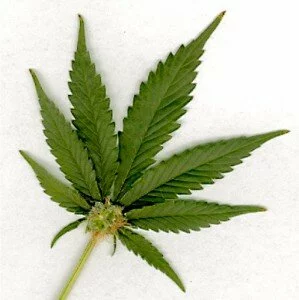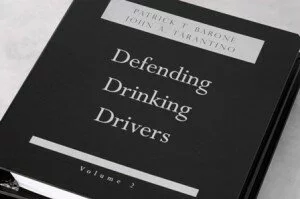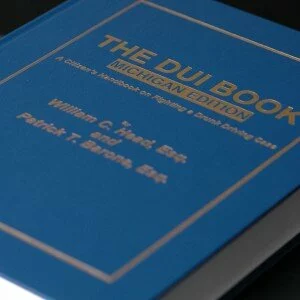If you’ve been arrested in Michigan for OWI and the charge is based on your use of marijuana, you may be wondering if Michigan’s Medical Marijuana Act applies to your case. The answer is almost certainly “yes,” but before you can understand this answer, you will need to understand a few things about Michigan’s OWI laws. This is because having a Medical Marijuana certificate DOES NOT make it legal to drive under the influence of drugs.
First, you should know that in 1999 Michigan’s drunk driving laws were substantially revised and the principal charge of OWI was thereby created. Since this time, Michigan law has provided several different theories that may be used by the state in any attempt to prove that a driver was OWI. Generally speaking, looking just at drugs, these theories include a variety of “zero tolerance” crimes requiring that the prosecutor show only the mere presence of certain controlled substances. This includes marijuana.
When marijuana is the drug in question, OWPD (Operating with Presence of Drugs) is the appropriate OWI theory in Michigan. This is because marijuana is a schedule I drug. In other words, marijuana is a “zero tolerance” drug, meaning that the prosecutor is relieved of his or her burden to prove intoxication or impairment, and instead needs only to prove, beyond a reasonable doubt, that the marijuana was in fact present in your blood at the time of driving.
Since the medical marijuana act passed in Michigan it is possible to argue that a certificate holder has an affirmative defense and upon raising same, may force the prosecution to prove actual impairment rather than mere presence. However, this issue has yet to been litigated in Michigan’s higher courts. Further, as of the date of this writing there is no case law, published or unpublished, interpreting Michigan’s Medical Marijuana Act. Reportedly there is a case pending in front of the Michigan Court of Appeals challenging the retroactive application of Michigan’s Medical Marijuana Act, but an opinion has not yet been issued.
It should also be noted that Michigan’s Medical Marijuana Act also provides procedures by which a Michigan driver can assert this affirmative defense and be retroactively upon the satisfaction of three elements, including: (1) a physician has stated that the marijuana serves a specified medical purpose[i]; (2) the amount of marijuana possessed (if any) was not more than reasonably necessary to the medical purpose[ii], and; (3) the use of marijuana was to address this medical purpose.[iii]
It would appear that Michigan’s Medical Marijuana Act makes the prosecution of OWI drugs based on the use or presence of marijuana in one’s blood much more difficult than had previously been the case. However, the only safe way to avoid breaking the law is to not use Marijuana at all. Having said this, if you are a Michigan Medical Marijuana certificate holder, it appears that the prosecution must show that you smoked enough marijuana to become intoxicated or impaired.
[i] MCLA § 333.264289(a)(1).
[ii] MCLA § 333.264289(a)(2).
[iii] MCLA § 333.264289(a)(3).

 Mr. Barone is the author of the well known and well respected two volume treatise on the law and science of drunk driving. This national book is relied on by DUI lawyers around the Country who use it to improve their skill in the defense of drinking drivers.
Mr. Barone is the author of the well known and well respected two volume treatise on the law and science of drunk driving. This national book is relied on by DUI lawyers around the Country who use it to improve their skill in the defense of drinking drivers.





{ 2 comments… read them below or add one }
Good Blog!
I’ve been out of the loop too long, Patrick. In the case of prescription drugs legally prescribed (e.g., valium, vicodin, codeine) and found in a driver’s blood/urine, my gut feeling is that the persecution would have to prove actual impairment while driving. Could you address this along with your thoughts when there is -vs- isn’t alcohol detected (both under and over the legal limit). NO, I am not involved in any cases involving such a scenario.
Reply
When drugs are involved the Michigan OWI statute provides two different theories which are available to a prosecutor seeking to gain a conviction for operating while intoxicated or impaired. These include either OUID (Operating Under the Influence of Drugs) or OWPD (Operating with Presence of Drugs). OUID is the appropriate theory for schedule III and IV drugs and with this theory the prosecutor must show that the drugs actually caused substantial impairment.
The second OWPD theory is applicable and appropriate only when schedule I drugs are found in the driver’s blood. This is because such drugs are considered to be “zero tolerance.” Consequently, for zero-tolerance drugs the prosecutor is relieved of his or her burden to prove intoxication or impairment, and instead needs only to prove, beyond a reasonable doubt, that the drugs were in fact present in the driver’s blood at the time of driving. Marijuana is a schedule I drug. With prescription drugs, the theory available will depend on the scheduled on which the drug is found.
Reply